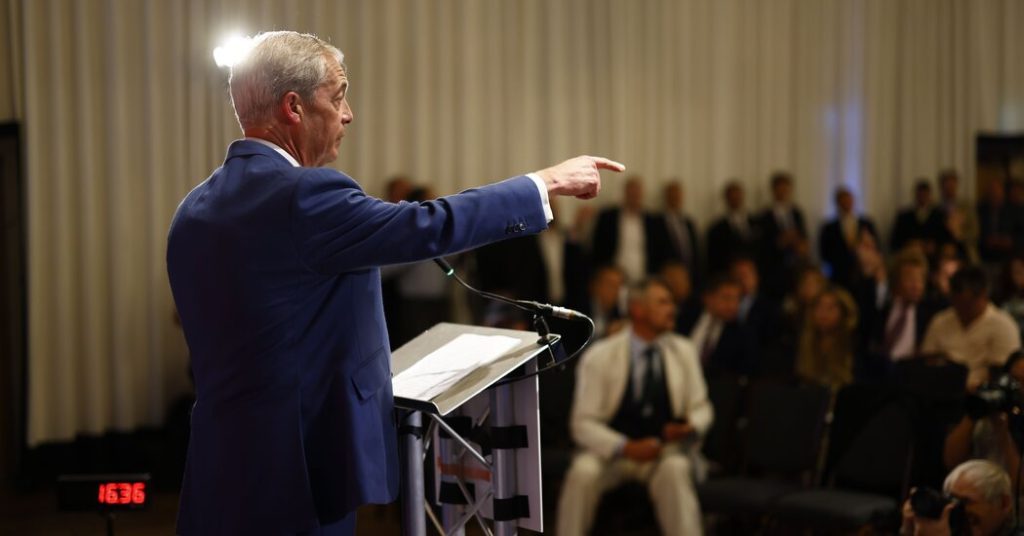In the lead-up to Britain’s general election, Prime Minister Rishi Sunak and Labour Party leader Keir Starmer are set to debate, with third-party candidate Nigel Farage entering the race with his party Reform U.K. This has added a new dynamic to the election, potentially drawing votes away from the Conservatives due to Reform U.K.’s anti-immigration stance. Despite Farage’s history of losing elections, his candidacy could energize other Reform U.K. candidates and present a challenge for Sunak in the weeks leading up to the vote.
Sunak’s decision to call the election early in hopes of capitalizing on some positive economic news has not changed the overall electoral landscape, with polls indicating a significant lead for Labour. The Tories have faced setbacks, particularly regarding immigration policy, which the Labour Party has vowed to overturn if they win the election. The possible outcome of the election, as projected in recent polls, suggests a substantial majority for Labour, possibly even surpassing past landslide victories.
Farage’s decision to run for Parliament may be part of a larger plan to potentially take over the Conservative Party after their expected defeat. This move could further damage the Tories’ chances in the election and alienate some within the party. However, regardless of the outcome, Farage’s candidacy is likely to inject energy and excitement into a campaign that had a sluggish start, marred by controversies and internal conflicts.
Starmer’s Labour Party has faced its share of challenges, including internal disputes and criticism over national security. However, with a significant lead over the Conservatives, his main concern remains avoiding self-inflicted problems that could deter voters. An incident involving the Labour Party’s position on nuclear weapons highlighted the need for Starmer to demonstrate strong leadership and national security credentials to reassure voters.
As the campaign progresses, Sunak has worked to connect with voters through a mix of campaign appearances and social media engagement. While facing criticism and challenges from opponents, such as Farage, he remains focused on leading the Conservatives to victory. His refusal to consider an alliance with Reform U.K. underscores his commitment to winning the election and becoming the next Prime Minister. Ultimately, with the election drawing nearer, the dynamics and challenges of the campaign continue to evolve, setting the stage for a potentially historic outcome.


